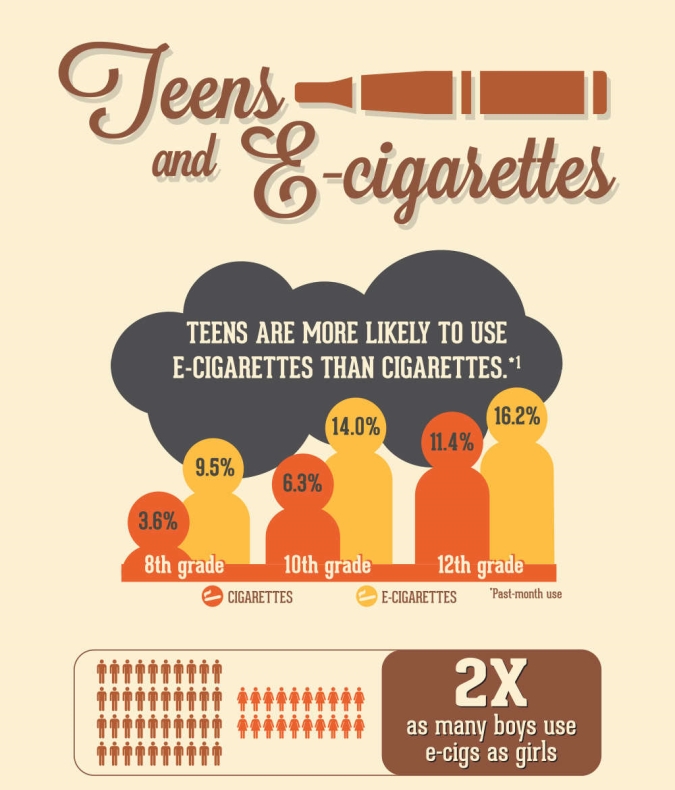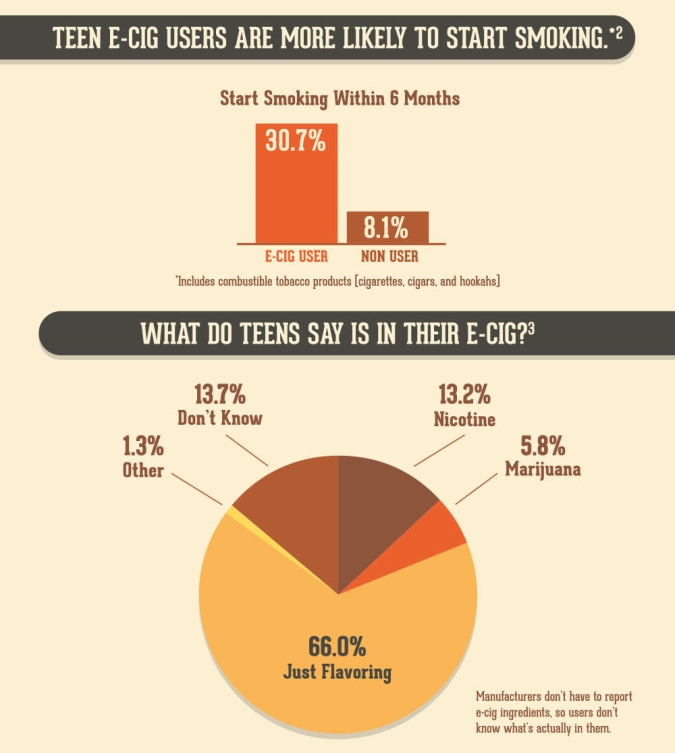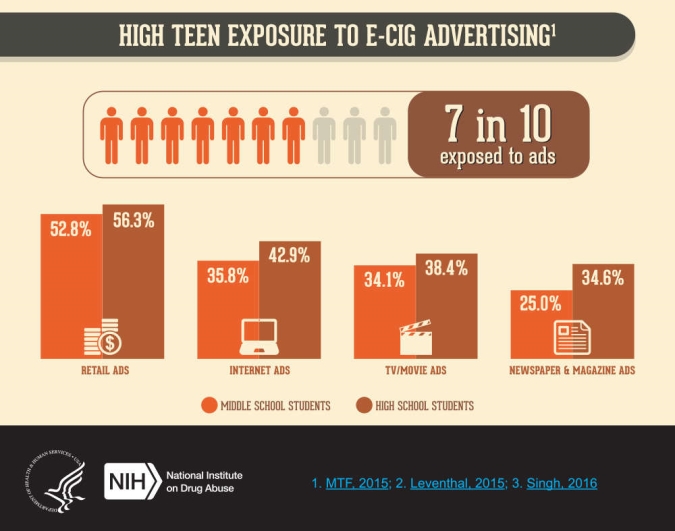In July, the
Campbell County School District sent out
a letter to parents of children about vaping and juuling outlining some dangers of these products,
as well as stating that it’s illegal for minors and a violation
of school policy. But, what about the health concerns? Here’s a
bit more information.
For those who don’t know, e-cigarettes are the most commonly used
tobacco product used by teenagers, with 16.2% of high school seniors having
used an e-cigarette in the last month versus 11.4% who have used traditional
cigarettes in the last month, according to the
National Institute of Drug Abuse. On top of that, the
American Academy of Pediatrics (AAP) reports that new research estimates that about 3 million adolescents
"vape".
E-cigarettes are classified as a type of tobacco product since they have
nicotine and other products in it similar to traditional tobacco.
Contemporary Pediatrics reports that nearly 500K people die each year in the United States alone
because of tobacco through cigarettes, making it the nation's greatest
cause of preventable death, more deadly than obesity, alcohol, or motor
vehicle accidents.
The liquid nicotine used in e-cigarettes is deadly as well. The AAP reports
that a 1-year-old child died from liquid nicotine in December of 2014
from the highly poisonous liquid nicotine in an e-cigarette. Research
on any of the e-cigarettes show they contain cancer-causing agents, respiratory
irritants, heavy metals, and volatile organic compounds.
A newer trend for the e-cigarettes is devices called Juul and Phix(fix).
These look like a flash drive you would put into a computer, which some
believe are geared toward children and teenagers because they are small,
discreet, and can be placed in a pocket very easily. These are being used
in classrooms, hallways, and restrooms at school and are being shared
with friends as well.
The juul operates by heating a “pod” of e-liquid containing
nicotine, flavoring, and other substances. When heated, the liquid becomes
an aerosol, which is inhaled. The juul’s can be recharged by placing
them in the USB port in computers—furthering the theory of teenagers
being the targeted population. Each pod contains the same amount of nicotine
as one pack of cigarettes, according to Sanford Medicine. A phix pod contains
the same amount of nicotine as in two packs of cigarettes. The concentration
of nicotine in juul is more than double the concentration found in other
e-cigarettes. These are HIGHLY addictive. The addictive potential is so
high that the U.S. Surgeon General has declared that youth use of nicotine
in any form is unsafe, as reported by the U.S. Department of Health.
Kids and teens can order “e-juice” or juul pods online as well.
While you have to be 21 to shop at juul’s online store—which
uses an internet based matching system to verify your age with public
records, credit card information, and government issued ID—you can
buy elsewhere without this verification process, according to
The Promise of Vaping and the Rise of Juul published in The New Yorker.
As parents, we need to aware of this and talk with our children. Tell them
the truth about what these are and the harmful consequences of using them.
We must tell our children what we expect them to do or not do. As a community
we must be proactive and aware of what drugs and substances are affecting
our youth and try to prevent substance abuse before it starts.
More resources on juuling can be found by contacting the
Campbell County Prevention Council on Facebook or
https://campbellcountyprevention.org/. You can also download a
Tobacco Prevention Toolkit made available by Stanford Medicine. A specific unit on juuling and other
pod-based systems can be found
here.
Holly Hink, APRN, CPNP and
Brianne Wooldridge, LPC work at the Campbell County Medical Group
Kid Clinic, a school-based pediatric clinic offering medical care for Campbell County,
Wyoming. The clinic serves children ages 2 weeks to 18 years old; and
counseling services for children 4 years old to 21 years old. It is located
at 800 Butler Spaeth Rd., across from St. Matthew’s Catholic Church
in Gillette, Wyoming. The Kid Clinic is open Monday-Friday from 8 am-5
pm. For more information, call 307-688-8700 or visit
www.cchwyo.org/kidclinic. The Kid Clinic is a collaborative effort between Campbell County Health
and Campbell County School District.
Infographics available through the
National Institute on Drug Abuse


